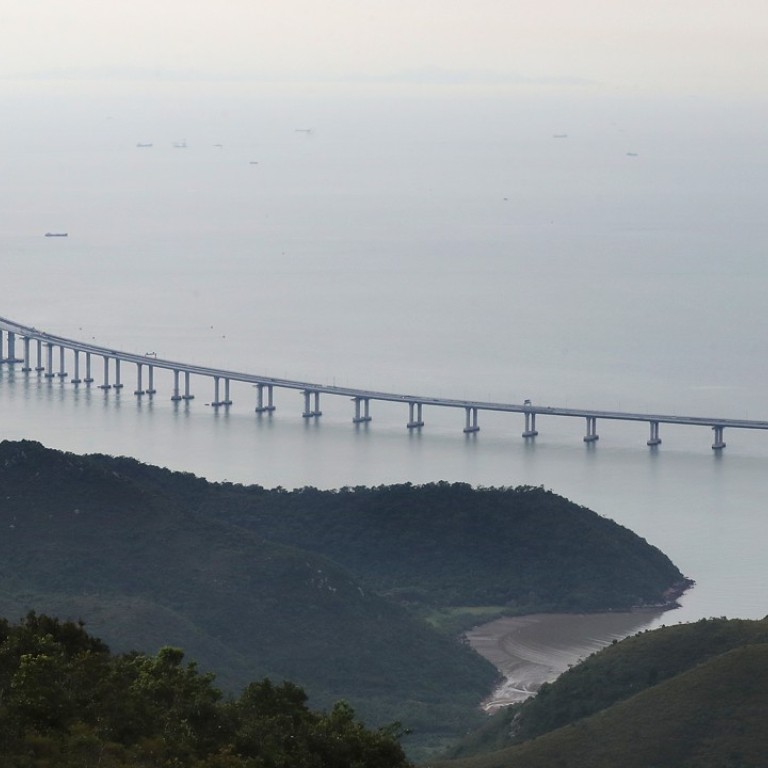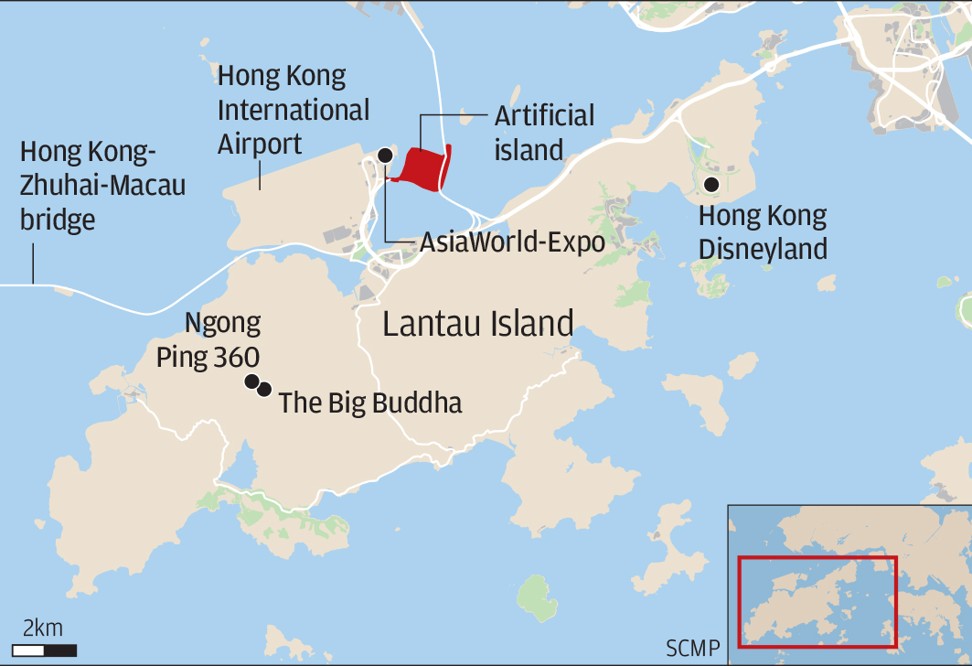
Mega-bridge artificial island has big business potential, Lantau group says
Lantau Development Alliance sets out proposal to develop island into an information technology centre
Less than a week before Hong Kong’s leader Carrie Lam Cheng Yuet-ngor is to deliver her maiden policy address, the alliance said on Thursday it had submitted a proposal to the government on how best to capitalise on the potential offered by the artificial island.

“(The island) has potential to become a centre for technological talent and information,” said a statement from the alliance, which consists of companies such as Hong Kong Disneyland and AsiaWorld-Expo that have business interests in the area.
The alliance was referring to the HK$35.9 billion Hong Kong Boundary Crossing Facilities project, part of the HK$117 billion Hong Kong-Zhuhai-Macau bridge that will connect Hong Kong to the mainland when it is expected to open by the end of this year.
Agents eye big profits as applications open for licences to cross border at Hong Kong-Zhuhai bridge
The boundary crossing facilities will be located on an artificial island of about 150 hectares in waters northeast of Hong Kong International Airport. The facilities will provide clearance for goods and passengers.
Under the alliance’s proposal, the island would be able to used for many other purposes.
“Hong Kong’s status as an international free port and protector of intellectual property rights uniquely positions it to evolve into a centre for leading-edge research and product commercialisation for China,” the alliance said.
The proposed IT centre to be set up on the island should be managed by an expert body such as the Hong Kong Science Park, the alliance suggested. This centre would be able to draw both mainland and overseas companies because of its geographical location – next to the airport and connecting the city to the mainland.
But Francis Fong Po-kiu, honorary president of the Information Technology Federation, said what really draws companies to Hong Kong is what business incentives are on offer.
“The key question is, why should they come to Hong Kong? It all comes down to whether the government is willing to offer rental and tax incentives,” he said. “You can have many companies in the same place but it’s not like the company next to you will surely help you.”
Airport to build HK$3 billion short cut for passengers using Hong Kong-Zhuhai-Macau bridge
The alliance also suggested that the government consider developing medical tourism on the island.
“Hong Kong’s world-class health care resources give it the potential to develop high-end medical tourism. Small-scale medical centres could be established at (the island) to offer tourists health care services such as check-ups, nutrition consultation service and vaccination,” it said.
But Polytechnic University’s Professor Peter Yuen Pok-man, who specialises in health services management, poured cold water on this proposal.
He said that there are several kinds of medical tourism services, including beauty treatments such as Botox injections. Another kind of service is when rich people from developing countries visit developed countries, such as the United States, to seek advanced medical treatments for their severe illnesses.
“Hong Kong’s edge is that the city has the technique to handle complex medical procedures. But the problem is that the hospitals that have such techniques are the public hospitals. The queue to get treatments at the public hospitals is very long,” said Yuen.
“A city is capable of developing medical tourism when there is excess capacity to do so.”
Tourists would also not be interested to get Botox injections or medical check-ups in Hong Kong because such services are much cheaper in mainland China and Thailand, he added.

